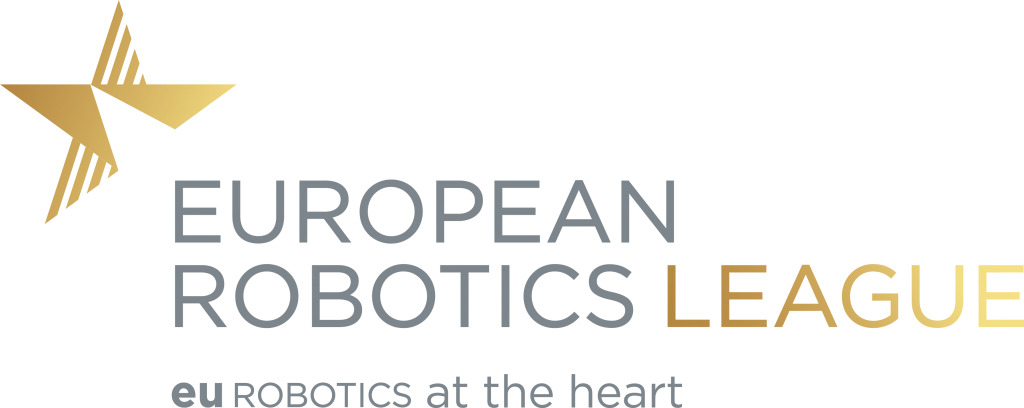
From November 25 to 28, 2024, the 1st euROBIN Coopetition will take place in Nancy, France, following Humanoids 2024, the IEEE-RAS 2024 International Conference on Humanoid Robots.
euROBIN coopetitions are designed not only to test individual team capabilities but also to foster collaborative innovation by rewarding teams for both their own achievements and the successful integration of their developed modules by others. By promoting modularity, reusability, and transferability in robotic systems, euROBIN aims to advance the frontier of robotics and artificial intelligence, driving progress in diverse application domains such as robotic manufacturing, personal robotics, and outdoor robotics for sustainable communities. Hereby, with these profiles we would like to welcome you to the pioneering world of the euROBIN project, where the brightest robotic teams from across Europe converge to participate in this groundbreaking event.

- NAME: Tecnalia Research&Innovation
- TYPE: Research Institute
- LEADER CONTACT: Francisco Blanco;
This email address is being protected from spambots. You need JavaScript enabled to view it. - PRESS CONTACT: To be confirmed
- URL WEBSITE: https://www.tecnalia.com/
- TWITTER: Tecnalia (@tecnalia) / X
- VIDEOS: Tecnalia- YouTube
- ROBOTS OR PRODUCTS SHORT PRESENTATION: Robotics and Automation 2023 Success Stories
- TECHNICAL DESCRIPTION OF THE ROBOT/PRODUCTS: NEXTAGE- Collaborative Humanoid Robot
Kawada Nextage robot. It is a humanoid robot with a head, torso and two 6DoF arms, resulting in 15 total DoF. Nextage is designed to work alongside humans in the production line, performing manipulation tasks in flexible manufacturing settings. The robot comes with two cameras mounted on the head and two other cameras on each wrist. A ROS compatible software stack developed alongside Tecnalia is provided.

- STAND IN HUMANOIDS 2024: No


From November 25 to 28, 2024, the 1st euROBIN Coopetition will take place in Nancy, France, following Humanoids 2024, the IEEE-RAS 2024 International Conference on Humanoid Robots.
euROBIN coopetitions are designed not only to test individual team capabilities but also to foster collaborative innovation by rewarding teams for both their own achievements and the successful integration of their developed modules by others. By promoting modularity, reusability, and transferability in robotic systems, euROBIN aims to advance the frontier of robotics and artificial intelligence, driving progress in diverse application domains such as robotic manufacturing, personal robotics, and outdoor robotics for sustainable communities. Hereby, with these profiles we would like to welcome you to the pioneering world of the euROBIN project, where the brightest robotic teams from across Europe converge to participate in this groundbreaking event.

- NAME: Tecnalia Research&Innovation
- TYPE: Research Institute
- LEADER CONTACT: Francisco Blanco;
This email address is being protected from spambots. You need JavaScript enabled to view it. - PRESS CONTACT: To be confirmed
- URL WEBSITE: https://www.tecnalia.com/
- TWITTER: Tecnalia (@tecnalia) / X
- VIDEOS: Tecnalia- YouTube
- ROBOTS OR PRODUCTS SHORT PRESENTATION: Robotics and Automation 2023 Success Stories
- TECHNICAL DESCRIPTION OF THE ROBOT/PRODUCTS: NEXTAGE- Collaborative Humanoid Robot
Kawada Nextage robot. It is a humanoid robot with a head, torso and two 6DoF arms, resulting in 15 total DoF. Nextage is designed to work alongside humans in the production line, performing manipulation tasks in flexible manufacturing settings. The robot comes with two cameras mounted on the head and two other cameras on each wrist. A ROS compatible software stack developed alongside Tecnalia is provided.


From November 25 to 28, 2024, the 1st euROBIN Coopetition will take place in Nancy, France, following Humanoids 2024, the IEEE-RAS 2024 International Conference on Humanoid Robots.
euROBIN coopetitions are designed not only to test individual team capabilities but also to foster collaborative innovation by rewarding teams for both their own achievements and the successful integration of their developed modules by others. By promoting modularity, reusability, and transferability in robotic systems, euROBIN aims to advance the frontier of robotics and artificial intelligence, driving progress in diverse application domains such as robotic manufacturing, personal robotics, and outdoor robotics for sustainable communities. Hereby, with these profiles we would like to welcome you to the pioneering world of the euROBIN project, where the brightest robotic teams from across Europe converge to participate in this groundbreaking event.

- NAME: Tecnalia Research&Innovation
- TYPE: Research Institute
- LEADER CONTACT: Francisco Blanco;
This email address is being protected from spambots. You need JavaScript enabled to view it. - PRESS CONTACT: To be confirmed
- URL WEBSITE: https://www.tecnalia.com/
- TWITTER: Tecnalia (@tecnalia) / X
- VIDEOS: Tecnalia- YouTube
- ROBOTS OR PRODUCTS SHORT PRESENTATION: Robotics and Automation 2023 Success Stories
- TECHNICAL DESCRIPTION OF THE ROBOT/PRODUCTS: NEXTAGE- Collaborative Humanoid Robot
Kawada Nextage robot. It is a humanoid robot with a head, torso and two 6DoF arms, resulting in 15 total DoF. Nextage is designed to work alongside humans in the production line, performing manipulation tasks in flexible manufacturing settings. The robot comes with two cameras mounted on the head and two other cameras on each wrist. A ROS compatible software stack developed alongside Tecnalia is provided.

